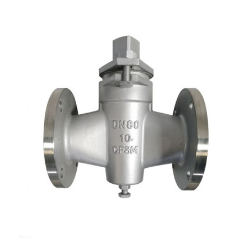flanged expansion joint
Flanged Expansion Joints Essential Components for Pipe Systems
Flanged expansion joints are crucial components used in various piping systems across different industries. Their primary function is to accommodate thermal expansion, contraction, and vibration in piping systems, ensuring operational reliability and structural integrity. As pipes heat up from flowing fluids, they expand; conversely, when they cool, they contract. Failure to manage these movements can lead to stress, damage, and ultimately, system failure.
Manufactured from a range of materials, including rubber, metal, and composite substances, flanged expansion joints are designed to absorb movements in multiple directions. They consist of a flexible bellows element and flanged ends that facilitate easy installation. The bellows can expand and compress, allowing for the necessary flexibility in fluctuating temperatures while maintaining a tight seal to prevent leaks.
One of the significant advantages of flanged expansion joints is their ability to mitigate the effects of vibration
. Equipment such as pumps, compressors, and turbines can generate substantial vibrations, which, if transmitted through rigid piping systems, can lead to wear and tear, misalignment, and system downtime. By integrating flanged expansion joints into these systems, engineers can dampen these vibrations, enhancing the longevity and reliability of the infrastructure.flanged expansion joint

In addition to accommodating thermal and vibrational movement, flanged expansion joints also serve as shock absorbers. In scenarios where sudden changes in pressure may occur, these joints can help in reducing the impact, safeguarding both the piping and connected equipment from potential damage.
Proper selection and installation are critical to maximizing the benefits of flanged expansion joints. Factors such as pressure ratings, temperature ranges, and the specific application must be considered. Engineers often analyze the system’s design to select a joint that will perform efficiently under the expected operational conditions. Moreover, routine maintenance checks can further ensure that these components continue to operate effectively, preventing unexpected failures.
In conclusion, flanged expansion joints are indispensable for the safe and efficient operation of piping systems. Their ability to manage thermal expansion, vibration, and shock makes them essential in various applications, from chemical processing to power generation. As industries continue to evolve and demand more robust and reliable systems, the importance of these components will undoubtedly increase, solidifying their role in modern engineering practices. For any piping system, investing in high-quality flanged expansion joints is not just beneficial but crucial for long-term performance and durability.
-
The Key to Fluid Control: Exploring the Advantages of Ball Valves in Industrial SystemsNewsJul.09,2025
-
The Versatile World of 1, 2, and 3 Piece Ball ValvesNewsJul.09,2025
-
Stainless Steel Ball Valves: The Ideal Choice for Efficient Flow ControlNewsJul.09,2025
-
Optimizing Fluid Control with Ball Float ValvesNewsJul.09,2025
-
Manual Gate Valves: Essential for Control and EfficiencyNewsJul.09,2025
-
Everything You Need to Know About Butterfly ValvesNewsJul.09,2025
-
The Versatility of Wafer Type Butterfly ValvesNewsJul.08,2025




